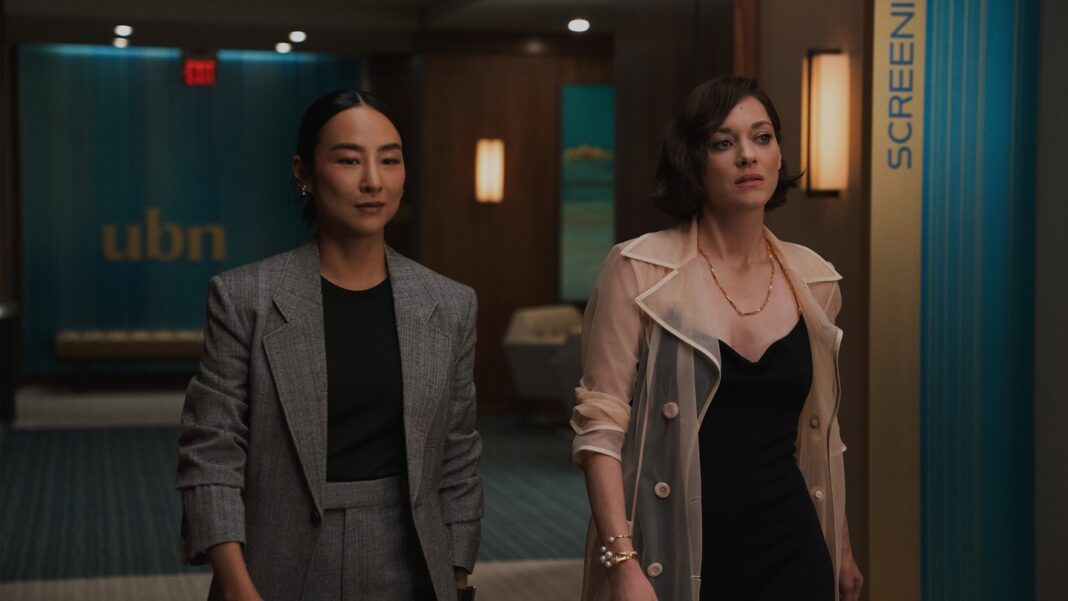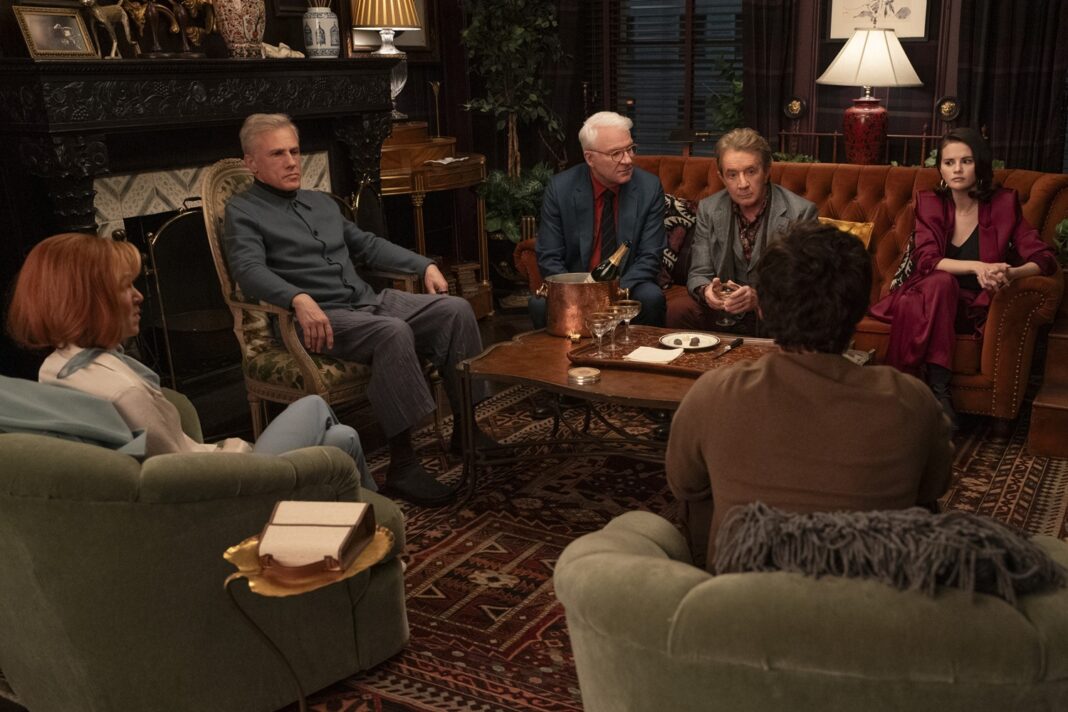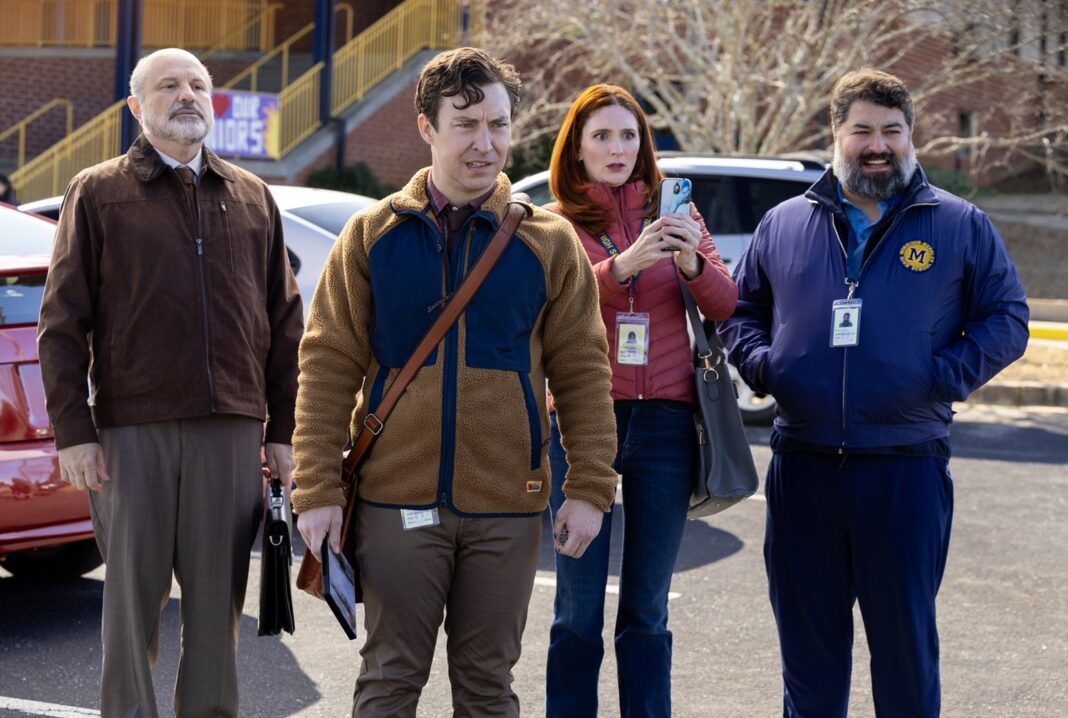In today’s world of news, it’s almost challenging to invent fictional stories that are more compelling than what’s happening in the real world. Since its start, The Morning Show has tackled hot-button issues, incorporating sexual misconduct in the workplace and the January 6th, 2021 insurrection at the White House, among many others, throughout its first three seasons. The series hardly shows any signs of slowing down in its crowded and busy fourth season, adding a slew of new characters and expanding its scope even more to touch on as many subplots as possible.
Leading UBA into a new era is taking its toll on its freshly-promoted leader Stella (Greta Lee), who has to answer to Celine (Marion Cotillard) and her vision for the company, which includes Brodie (Boyd Holbrook), a conspiracy theorist podcaster who definitely isn’t big on legacy media, and Ben (William Jackson Harper), the no-nonsense head of sports. Alex (Jennifer Aniston) is relatively comfortable where she is until she’s targeted by deepfakes, while Mia (Karen Pittman) is still fighting hard to get the promotion she was promised long ago. Bradley (Reese Witherspoon) is troubled by reports of a cover-up at UBA, and Corey (Billy Crudup) isn’t ready to say goodbye to the world he used to run, determined to weasel his way back no matter how he has to do it.
A lot has happened over the course of this show’s first three seasons, and while audiences have gravitated towards the variety of characters on display, including last season’s standout Nicole Beharie, who’s back as Chris, who isn’t going to have anyone tell her what to do, this show does seem to feel a need to level up. Casting Jon Hamm in a major role was child’s play, with Cotillard, Holbrook, Harper, Aaron Pierre, and Jeremy Irons all on board this season to ensure that this show looks different enough from how it started, adding complications to preexisting dynamics and ensuring that no one gets too long to rest and recuperate after going through a significant ordeal.
More isn’t always better, and though this ensemble has never felt particularly small, there’s an awful lot going on in season four. Everyone seems to be on a separate page, and there are storylines and characters that don’t even interact at all because this show is casting such a wide net. If anything, the two leads, who have both earned Emmy nominations for their performances, have parts that feel diminished, with Lee and Pittman getting more worthwhile and showy storylines, not to mention substantial screentime. Promoting those two terrific actresses to near-lead status is commendable, but it doesn’t seem like it was entirely intentional. Cotillard and Pierre are also fine additions, but their roles aren’t prominent.
When this show first started, having all its players involved in a scandal that epitomized the pervasiveness and complexity of the #metoo movement felt poignant and relevant. Moving into AI and other moral debates does make sense, but everything now seems so heightened and dramatic that it doesn’t have the same sense of authenticity and urgency to it. There are worthwhile takeaways from many of the storylines, but they lean towards soapy and salacious rather than legitimately dramatic and compelling. There are standouts and memorable scenes to be found throughout the season, but this is one series that might benefit from being pared down to its most essential and efficient elements instead of constantly trying to cover as much as possible in the hopes of not missing anything. This show has evolved from what it first was, but in the process, it’s also lost some of what made it distinct and vital television.
Season Rating: 6/10



